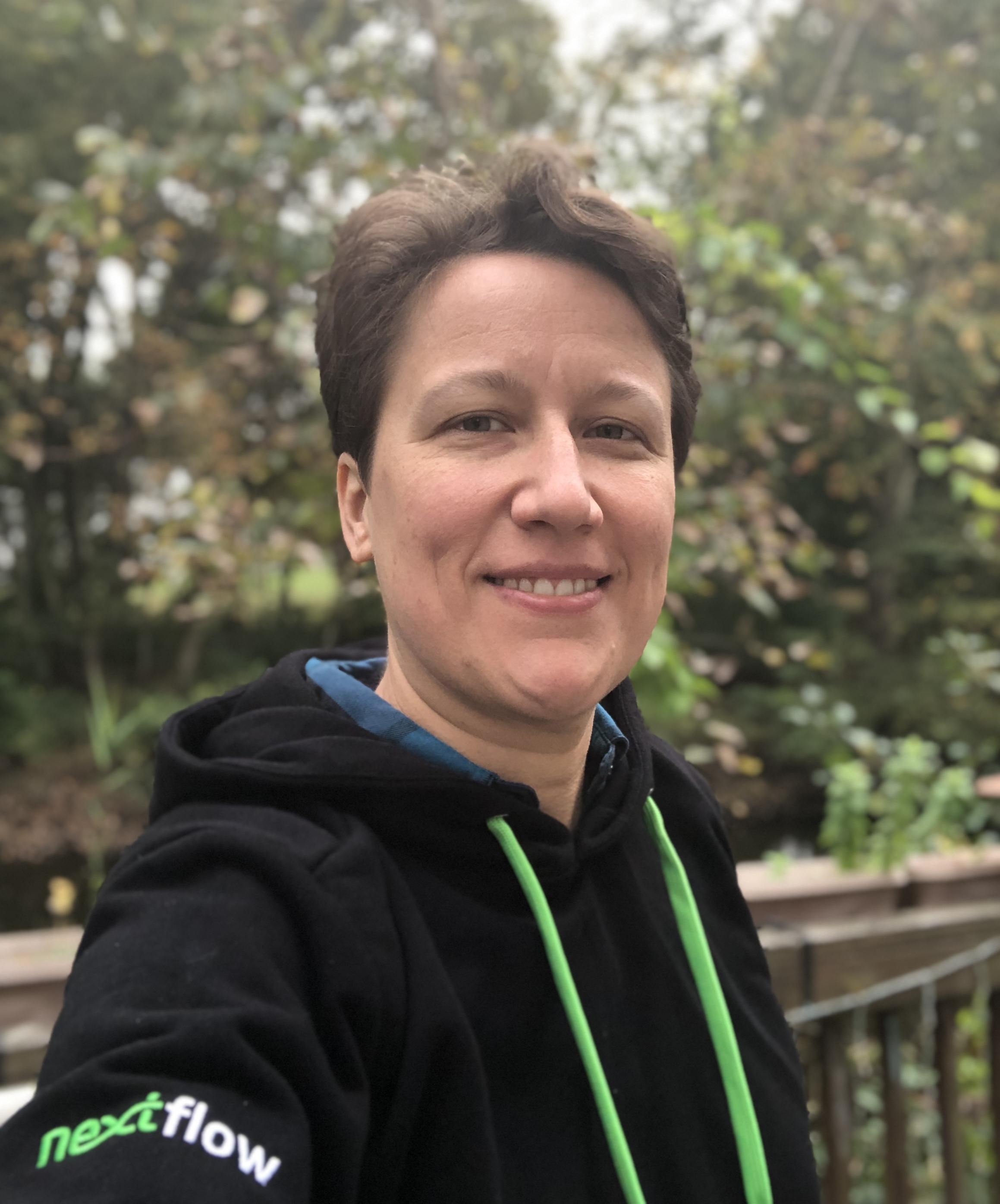
I’m excited to announce that I’m joining Seqera as Lead Developer Advocate. My mission is to support the growth of the Nextflow user community, especially in the USA, which will involve running community events, conducting training sessions, managing communications and working globally with our partners across the field to ensure Nextflow users have what they need to be successful. I’ll be working remotely from Boston, in collaboration with Paolo, Phil and the rest of the Nextflow team.
Some of you may already know me from my previous job at the Broad Institute, where I spent a solid decade doing outreach and providing support for the genomics research community, first for GATK, then for WDL and Cromwell, and eventually Terra. A smaller subset might have come across the O’Reilly book I co-authored, Genomics on the Cloud.
This new mission is very much a continuation of my dedication to helping the research community use cutting-edge software tools effectively.
To give you a brief sense of where I’m coming from, I originally trained as a wetlab microbiologist in my homeland of Belgium, so it’s fair to say I’ve come a long way, quite literally. I never took a computing class, but taught myself Python during my PhD to analyze bacterial plasmid sequencing data (72 kb of Sanger sequence!) and sort of fell in love with bioinformatics in the process. Later, I got the opportunity to deepen my bioinformatics skills during my postdoc at Harvard Medical School, although my overall research project was still very focused on wetlab work.
Toward the end of my postdoc, I realized I had become more interested in the software side of things, though I didn’t have any formal qualifications. Fortunately I was able to take a big leap sideways and found a new home at the Broad Institute, where I was hired as a Bioinformatics Scientist to build out the GATK community, at a time when it was still a bit niche. (It’s a long story that I don’t have time for today, but I’m always happy to tell it over drinks at a conference reception…)
The GATK job involved providing technical and scientific support to researchers, developing documentation, and teaching workshops about genomics and variant calling specifically. Which is hilarious because at the time I was hired, I had no clue what variant calling even meant! I think I was easily a month or two into the job before that part actually started making a little bit of sense. I still remember the stress and confusion of trying to figure all that out, and it’s something I always carry with me when I think about how to help newcomers to the ecosystem. I can safely say, whatever aspect of this highly multidisciplinary field is causing you trouble, I’ve struggled with it myself at some point.
Anyway, I can’t fully summarize a decade in a couple of paragraphs, but suffice to say, I learned an enormous amount on the job. And in the process, I developed a passion for helping researchers take maximum advantage of the powerful bioinformatics at their disposal. Which inevitably involves workflows.
Over time my responsibilities at the Broad grew into supporting not just GATK, but also the workflow systems people use to run tools like GATK at scale, both on premises and increasingly, on public cloud platforms. My own pipelining experience has been focused on WDL and Cromwell, but I’ve dabbled with most of the mainstream tools in the space.
If I had a dollar for every time I’ve been asked the question “What’s the best workflow language?” I’d still need a full-time job, but I could maybe take a nice holiday somewhere warm. Oh, and my answer is: whatever gets the work done, plays nice with the systems you’re tied to, and connects you to a community.
That’s one of the reasons I’ve been watching the growth of Nextflow’s popularity with great interest for the last few years. The amount of community engagement that we’ve seen around Nextflow, and especially around the development of nf-core, has been really impressive.
So I’m especially thrilled to be joining the Seqera team the week of the Nextflow Summit in Barcelona, because it means I’ll get to meet a lot of people from the community in person during my very first few days on the job. I’m also very much looking forward to participating in the hackathon, which should be a great way for me to get started doing real work with Nextflow.
I’m hoping to see many of you there!